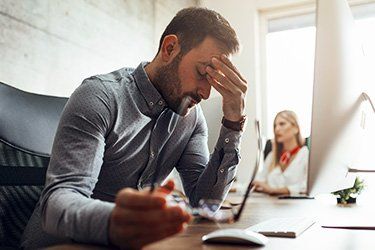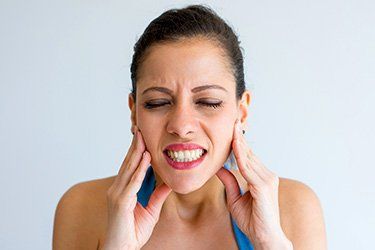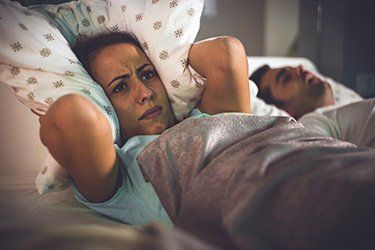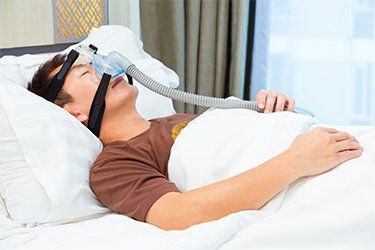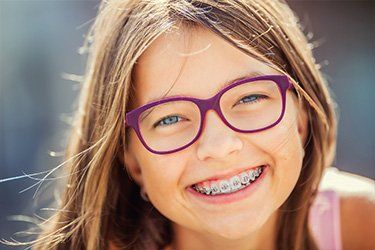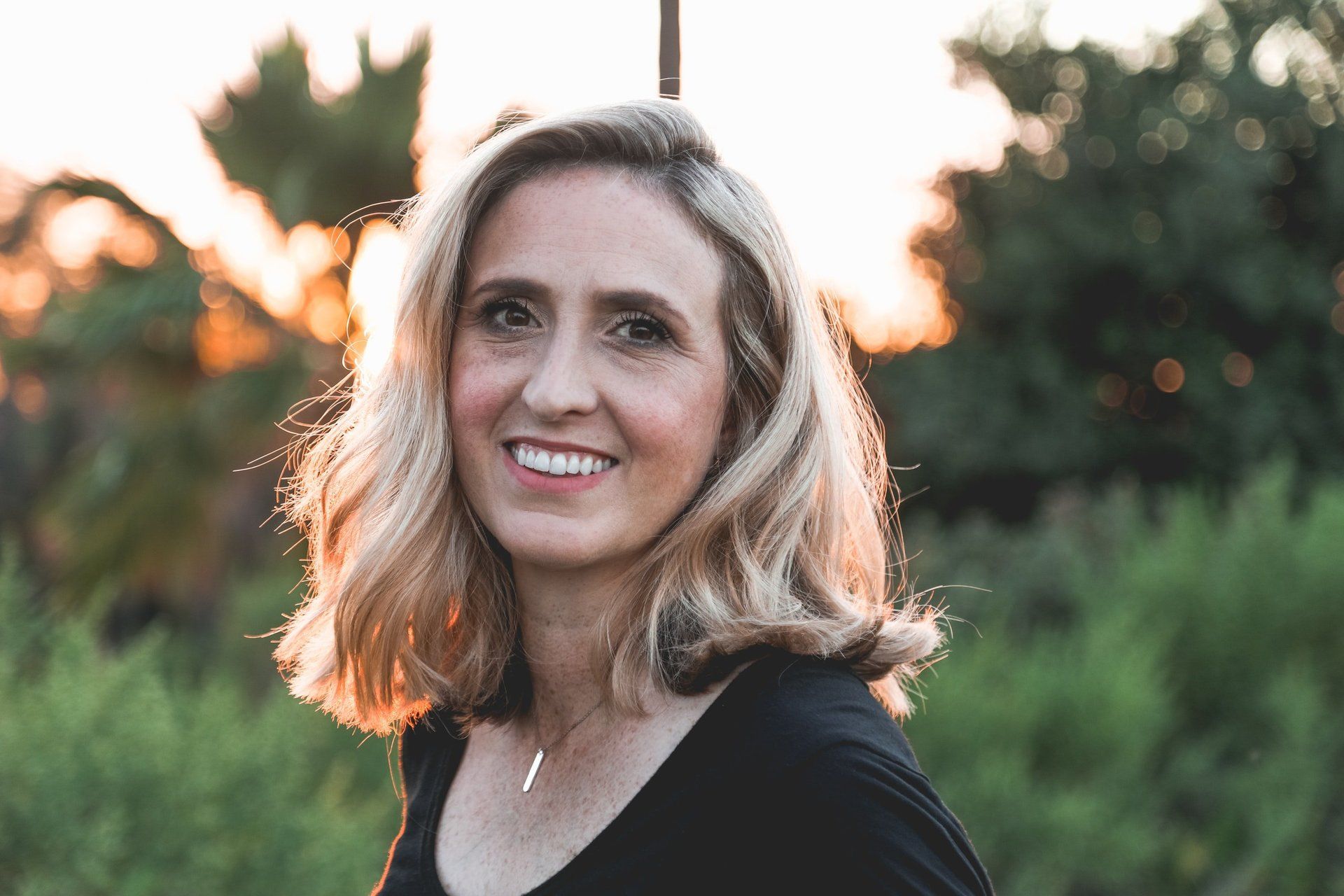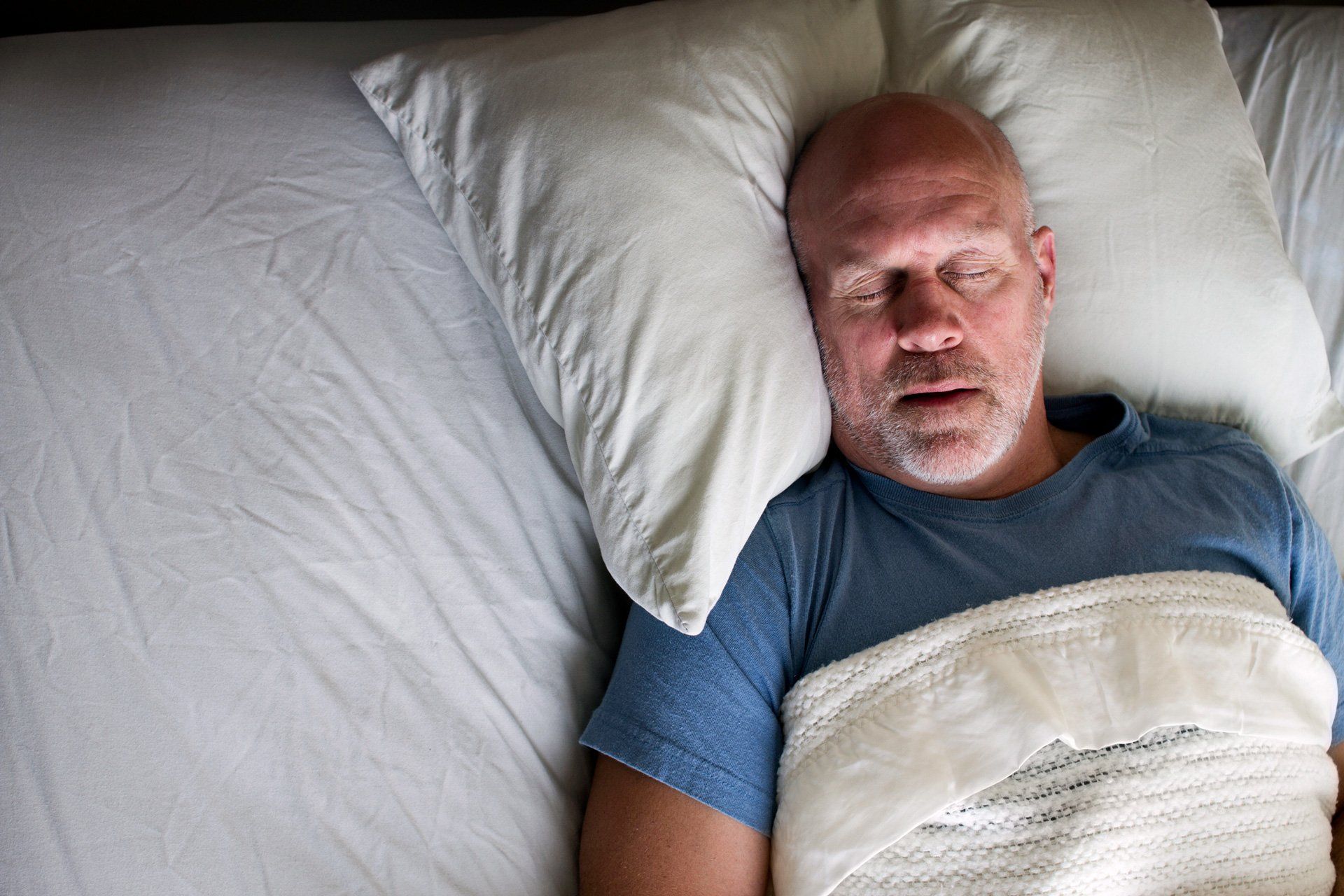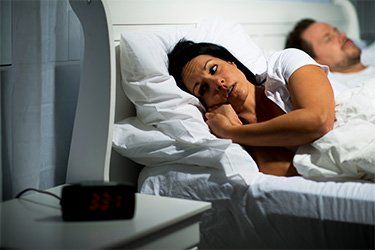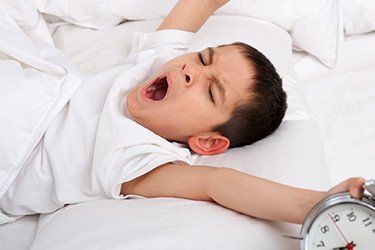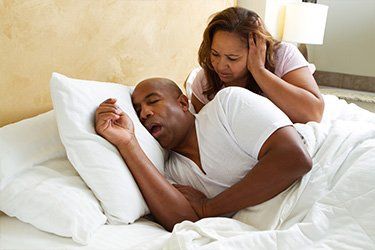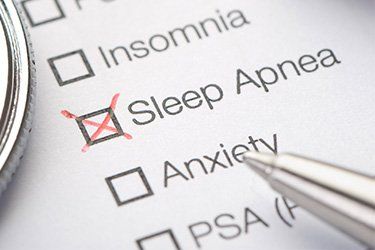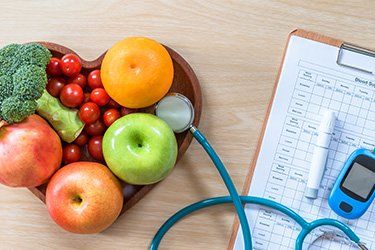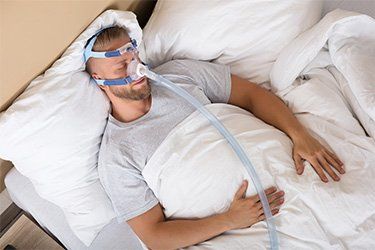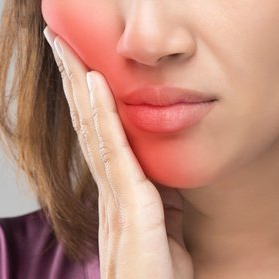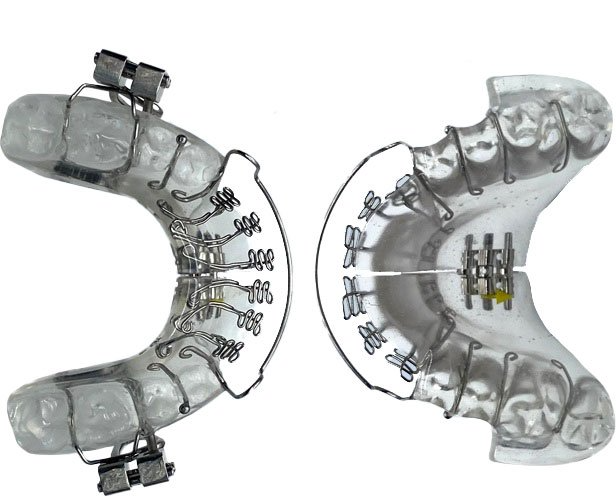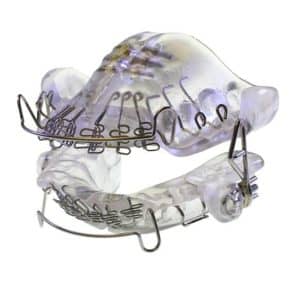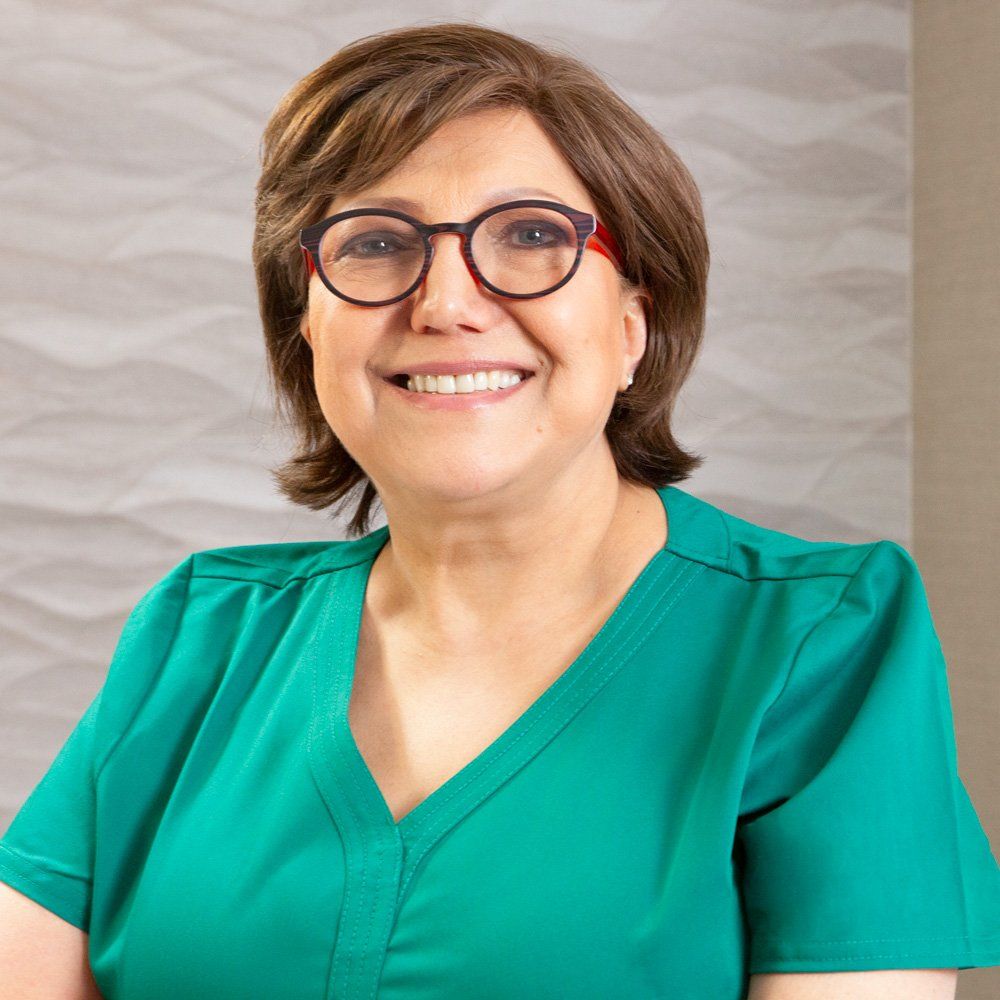Sleep-Disordered Breathing and Sleep Apnea Treatment
At Breath of Life Dental (BOLD) in North Bethesda, MD, we focus on alternative treatments for sleep apnea. Dr. Maryam Seifi specializes in sleep-disordered breathing treatment for both children and adults in North Bethesda and the surrounding areas. Dr. Maryam Seifi has over 30 years of experience and training in how to handle:
- Sleep apnea
- Individuals inclined to develop sleep apnea
- Those who may have undetected sleep apnea
To address these issues, we provide Oral Appliance Therapy based on the Vivos Biomimetic Oral Appliance . This is a remarkable new device that offers a uniquely effective way to help patients overcome obstructive sleep apnea or sleep-disordered breathing. Even individuals predisposed to these sleep disorders now have a way to ward off the serious health issues that result from chronic low blood oxygen levels.
Call Breath of Life Dental (BOLD) at (301) 818-2653 to schedule your appointment with Dr. Maryam Seifi. Take control of your sleep apnea and start getting the restful sleep you need for a long and healthy life.
Sleep Apnea Treatment in North Bethesda, MD
Want to learn more about the methods for treating sleep apnea that Dr. Maryam Seifi offers at Breath of Life Dental (BOLD)? Keep reading to see the types of dental sleep medicine we provide for sleep apnea and click the links to learn more about each one.
Sleep Apnea in Adults
Adults who may have struggled with chronically poor sleep and daytime fatigue for years now have an answer that not only resolves obstructive sleep apnea (OSA) but also eliminates their dependence on a machine. In the past, your only real option to relieve your sleep apnea symptoms was to use a continuous positive airway pressure (CPAP) machine. Now, you can come see Dr. Maryam Seifi for treatment that handles the underlying cause of your sleep apnea so you can get great sleep.
Sleep Apnea in Children
Children as young as two years have been identified as suffering from sleep apnea. In children, the effects of sleep apnea may show up as behavioral or learning problems in addition to fatigue. Many parents and teachers don’t realize that the real cause of the struggles is as simple as not getting enough sleep. Dr. Maryam Seifi knows what causes childhood sleep apnea and how to correct it so your child can be healthy and happy.
Non-Surgical Treatment for TMJ Disorders
Your temporomandibular joint is what attaches your lower jaw to your skull. Problems with the temporomandibular joint can cause pain, headaches and a locked jaw. The Vivos appliance permanently corrects TMJ disorders to relieve your painful symptoms and help you maintain your good health. The most common treatment for TMJ disorders is surgery; but at Breath of Life Dental (BOLD), we offer effective, non-surgical treatment options using the Vivos appliance.
Sleep Apnea and Snoring
Many people snore at night, but did you know that Snoring can be either harmless or a sign of damaging sleep-disordered breathing? The only way to know for sure is to get a thorough oral exam from a qualified dentist like Dr. Maryam Seifi. She will be able to tell you if your snoring is harmless or a sign of a sleep disorder like sleep apnea.
Sleep Apnea Treatment Without CPAP
Many sleep apnea patients treated with continuous positive airway pressure (CPAP) machines devices desperately hope for a more comfortable solution-or better yet, an actual solution to their obstructive sleep apnea. That's why Dr. Maryam Seifi offers her patients alternative treatments for sleep apnea like The Vivos appliance. This oral appliance offers permanent results with comfortable, non-invasive treatment.
Early Orthodontics for Children
If you’re like most parents, when you hear the word “orthodontics,” you instantly think of braces and teeth-straightening for kids. But did you know that crooked teeth are most often caused by too-little space in your child’s jaw? This issue can be corrected early on to allow your child’s permanent teeth plenty of room to grow in straight, no braces required!
Orthodontics for Adults
Many adults think the only solution to their crooked teeth is to get braces. But did you know that the Vivos oral appliance can actually improve the structure of your jaw (and consequently, the position of your teeth) without traditional braces? After a thorough examination, Dr. Maryam Seifi can provide you with your very own Vivos appliance for orthodontic treatment.
How Important Is Good Sleep for Your Health?
Sleep is a basic human need, like food, water and shelter. Without it, the body and mind deteriorate rapidly. When a person suffers from sleep apnea, their sleep is constantly interrupted. They gasp, they strain, and finally they partially wake up and gulp in air.
These interruptions make it impossible for your body to get the deep, restful sleep it needs to stay healthy. If you consistently get poor sleep, it can lead to health issues such as depression, hypertension, and migraines.
How Can We Help You?
The Different Types of Sleep-Disordered Breathing
Sleep-disordered breathing is an umbrella term that covers a number of conditions that affect your breathing when you are asleep. The most commonly known of these conditions is sleep apnea. Sleep apnea happens when you intermittently stop breathing during sleep, which can be caused by various factors depending on the type of sleep apnea you have.
There are three basic types of sleep apnea, all of which interrupt your breathing and cause you to wake up multiple times every night to catch your breath:
How Can I Tell if I Have Sleep Apnea?
Because the most obvious symptom (not breathing) happens when you are asleep, it can be hard to know for sure if you have sleep apnea—especially since most people do not remember waking up multiple times in the middle of the night to breathe. If you do have sleep apnea, it is important to start treatment right away to preserve your good health.
Even though you may not remember waking up in the middle of the night, there are other symptoms that you can notice on your own. These include:
- Loud snoring
- Waking up gasping, choking, or snorting
- Morning headaches, dry mouth, or sore throat
- Poor focus or difficulty concentrating
- Excessive daytime sleepiness
- Unexplained mood changes, like feeling sad or nervous
- Sudden short temper or irritability
- Loss of interest in sex
- TMJ disorders
If you have any of these symptoms, call Breath of Life Dental (BOLD) at
(301) 818-2653 to schedule a consultation with Dr. Maryam Seifi. She will be able to determine if you might have sleep apnea and help you understand your treatment options.
What Are the Symptoms of Sleep Apnea in Children?
Are you concerned that your child may be suffering from obstructive sleep apnea? It is a possibility if your child tends to:
- Snore
- Cough in their sleep
- Have trouble focusing in school
- Have night sweats
- Breathe through their mouth
- Feel anxious or depressed
- Sleepwalk
- Talk in their sleep
- Experience night terrors
- Wet the bed
- Be exhausted during the day
The good news is that your child does not have to learn to live with these symptoms. Call Breath of Life Dental at
(301) 818-2653 to schedule your consultation with Dr. Maryam Seifi and help your child get the restful sleep their growing body needs!
Am I At Risk of Developing Sleep Apnea?
When it comes to obstructive sleep apnea or central sleep apnea, there are different genetic and lifestyle factors that can increase your risk of developing this sleep disorder. These factors include:
- Obesity
- A small airway
- Family history
- Older age
- Gender (more common in men)
- Smoking
- Drinking alcohol
- Using sedatives or opiates.
In addition to the above factors, the following medical conditions can increase your risk of developing central sleep apnea:
- Congestive heart failure
- Stroke
If these conditions apply to you, then you should schedule an appointment with Dr. Maryam Seifi at Breath of Life Dental (BOLD). She will be able to tell you whether or not you currently have sleep apnea as well as advise you on lifestyle changes you can make to lower your risk of developing it.
Call us at
(301) 818-2653 to schedule your appointment today.
Is There Any Way to Improve My Sleep Apnea Symptoms at Home?
Because there are certain lifestyle habits that can increase your risk of developing obstructive sleep apnea, there are steps that you can take at home to reduce that risk. If you already have sleep apnea, you may see some improvement in your symptoms by making changes to your health habits. Try the following:
Who Can Benefit from the Vivos Appliance for Sleep Apnea?
Whether you have obstructive sleep apnea or central sleep apnea, you can benefit from dental sleep medicine administered by Dr. Maryam Seifi. She and her team at Breath of Life Dental (BOLD) can help relieve your symptoms, correct your breathing, and get you the good night’s sleep you deserve. This treatment also works great for children who are suffering from obstructive sleep apnea!
Even if you are not sure if you have sleep apnea, you should schedule a consultation with Dr. Maryam Seifi if you are experiencing any of the symptoms of sleep apnea. She will be able to determine if you are likely dealing with sleep apnea and which type of treatment is best for your needs.
Air Pressure Therapy for Sleep Apnea
If you have been diagnosed with obstructive sleep apnea, you have probably heard of positive airway pressure therapy. This therapy is done using one of the following types of machines:
- Continuous Positive Airway Pressure (CPAP)
This machine provides airflow at one consistent pressure level. A CPAP machine is commonly used in obstructive sleep apnea treatment because the continuous pressure helps to keep your airway unobstructed during sleep.
- BiLevel Positive Airway Pressure (BiPAP)
This machine provides airflow at two separate pressures—one for inhaling and one for exhaling. A BiPAP machine is commonly used to treat central, complex, or obstructive sleep apnea by using air pressure to keep your airway open during sleep and to encourage continuous breathing.
While these machines have been extremely helpful in treating obstructive sleep apnea, they can only relieve the symptoms. And if you have severe sleep apnea, they may not offer enough air pressure to help you breathe easily without also being uncomfortable.
Common Complaints About CPAP
Most patients who have used a continuous positive airway pressure (CPAP) machine to treat their obstructive sleep apnea have had similar struggles with using it. Some of the common complaints that Dr. Maryam Seifi has heard about CPAP machines from her patients include:
- The mask is uncomfortable.
- It feels claustrophobic.
- Breathing in forced air is hard.
- It causes irritation and facial sores.
- It causes a dry or stuffy nose.
- It is hard to fall asleep while wearing it.
- The machine is too noisy.
- It is a lifelong treatment that does not solve the real problem.
It is especially difficult for children with obstructive sleep apnea to get used to using a CPAP machine. And the worst part is that many patients who cannot tolerate using a CPAP machine end up giving up after a short trial period. This means their obstructive sleep apnea continues to interrupt their sleep and destroy their physical health.
Other Treatments for Obstructive Sleep Apnea
Another common obstructive sleep apnea treatment is called upper airway stimulation. This is a device (similar to a pacemaker) that gets surgically implanted into your chest with small parts that extend outward.
The surgeon will connect a wire to the nerve that controls your tongue. Then they will place a respiratory sensor in your chest. When you go to sleep, you can turn the upper airway stimulation device on. It will continually monitor your breathing throughout the night. And as you inhale, the wire will stimulate your tongue to prevent your obstructive sleep apnea.
The surgery is generally completed in 60 to 90 minutes and is considered an outpatient procedure. However, you will have to wait about a month after your surgery for your body to heal before you can use your upper airway stimulation device.
While this is an effective treatment for obstructive sleep apnea, it does require an invasive surgical procedure—and it only treats the symptoms, not the cause. There are a variety of other surgical treatments for sleep apnea for both adults and children that do help address the causes of obstructive sleep apnea, but most patients prefer a non-invasive treatment where possible.
Is There a Better Way to Treat Obstructive Sleep Apnea Syndrome?
At Breath of Life Dental (BOLD), we are excited to tell you that there is a better way to treat your obstructive sleep apnea! Dr. Maryam Seifi is highly trained in the use of dental sleep medicine to treat obstructive sleep apnea.
Dental sleep medicine is a term used to describe the use of specialized oral appliances to treat sleep-related breathing disorders like snoring and obstructive sleep apnea. This simple therapy is used all over the world as an excellent treatment for sleep apnea other than CPAP.
Dr. Maryam Seifi advocates for the Vivos system of oral appliances to treat sleep apnea in both adults and children. Why does she like the Vivos appliances so much? Because unlike CPAP and BiPAP machines or surgical treatments, the Vivos system can actually treat the underlying causes of your obstructive sleep apnea.
What does this mean for you? It means that once you have completed your treatment for sleep apnea using the Vivos system, you will no longer have to use the oral appliance to get a good night’s sleep!
How Do the Vivos Oral Appliances Work?
The Vivos system uses custom-fitted oral appliances to treat the underlying causes of obstructive sleep apnea. This appliance will change the shape and position of your jaws and palate, similar to how traditional braces reposition your teeth.
With gentle, continuous pressure, the Vivos appliance can correct your jaws’ alignment and increase the size of your airway. This is how it handles your obstructive sleep apnea so you can get high-quality, restful sleep for many years to come!
The Vivos oral appliances are removable and custom-fitted to your mouth. You will wear your Vivos appliance for about 12 to 15 hours per day over the course of your treatment to achieve relief from your sleep apnea symptoms.
The Two Types of Vivos Appliances
There are two different types of Vivos appliances that Dr. Maryam Seifi can prescribe to treat your obstructive sleep apnea, snoring, or TMJ disorders.
Are you looking for a way to end your struggle with sleep apnea? Call Breath of Life Dental at
(301) 818-2653 to schedule a consultation with Dr. Maryam Seifi! After a thorough examination, she will be able to tell you what is causing your sleep apnea and exactly how the Vivos appliances can handle it.
Are the Vivos Appliances Good for Treating Childhood Sleep Apnea?
The good news is that if your child has been diagnosed with obstructive sleep apnea, they can also use the Vivos oral appliances! Children tend to experience results faster and easier than adults do. Why is that? Because their bones are still growing, which means that instead of coaxing the bones to change position, Dr. Maryam Seifi can simply guide them to where they should be.
Dr. Maryam Seifi has seen incredible results in children who use the Vivos oral appliances to treat their sleep apnea. In fact, when obstructive sleep apnea was the cause, treatment with the Vivos system has improved many children’s quality of sleep. This in turn has led to:
- Increased ability to focus in school
- Improvement in overall mood
- Better ability to manage behavior
- Fewer headaches
- Improved physical growth
- Increased energy during the day
With Dr. Maryam Seifi’s expert care, your child can experience these life-changing results right here at Breath of Life Dental (BOLD) in North Bethesda, MD.
Vivos Treats More Than Just Sleep Apnea!
In addition to handling your obstructive sleep apnea, Dr. Maryam Seifi can prescribe a Vivos appliance to treat a wide range of other oral health issues such as:
- Chronic migraines
- Snoring
- Malocclusion
- Mouth breathing
- TMJ dysfunction
Are you experiencing pain or discomfort from any of the above conditions? Call Breath of Life Dental at (301) 818-2653 to schedule a consultation today!
The Incredible Benefits of Using the Vivos System for Sleep Apnea
Dr. Maryam Seifi recommends the Vivos System of oral appliances to her patients because it offers incredible benefits. While other treatment options may offer some of these benefits, the Vivos oral appliances offer all of them!
So long as you wear your Vivos oral appliance as directed and follow your treatment plan, you will take care of your obstructive sleep apnea and other oral conditions and experience these great benefits:
- Comfortable and discreet oral appliance
- Easy to put on and take off
- No noise disturbing your sleep
- All-natural pain relief
- Nonsurgical treatment
- Non-invasive treatment
- Fix oral posture to correct mouth breathing
- Permanent, life-changing results
- Improved quality of sleep
- No medication required
- FDA approved treatment
And unlike a CPAP or BiPAP machine, treatment with the Vivos oral appliance is not a lifelong commitment. Patients who follow Dr. Maryam Seifi’s instructions take on average 12 to 24 months to complete their treatment. In that short amount of time, you can see amazing and permanent results.
I Have Another Question!
If you have another question about Breath of Life Dental’s services, sleep apnea, or the Vivos system, call us at
(301) 818-2653. Our friendly staff will be happy to help answer your questions and schedule your consultation with Dr. Maryam Seifi.

